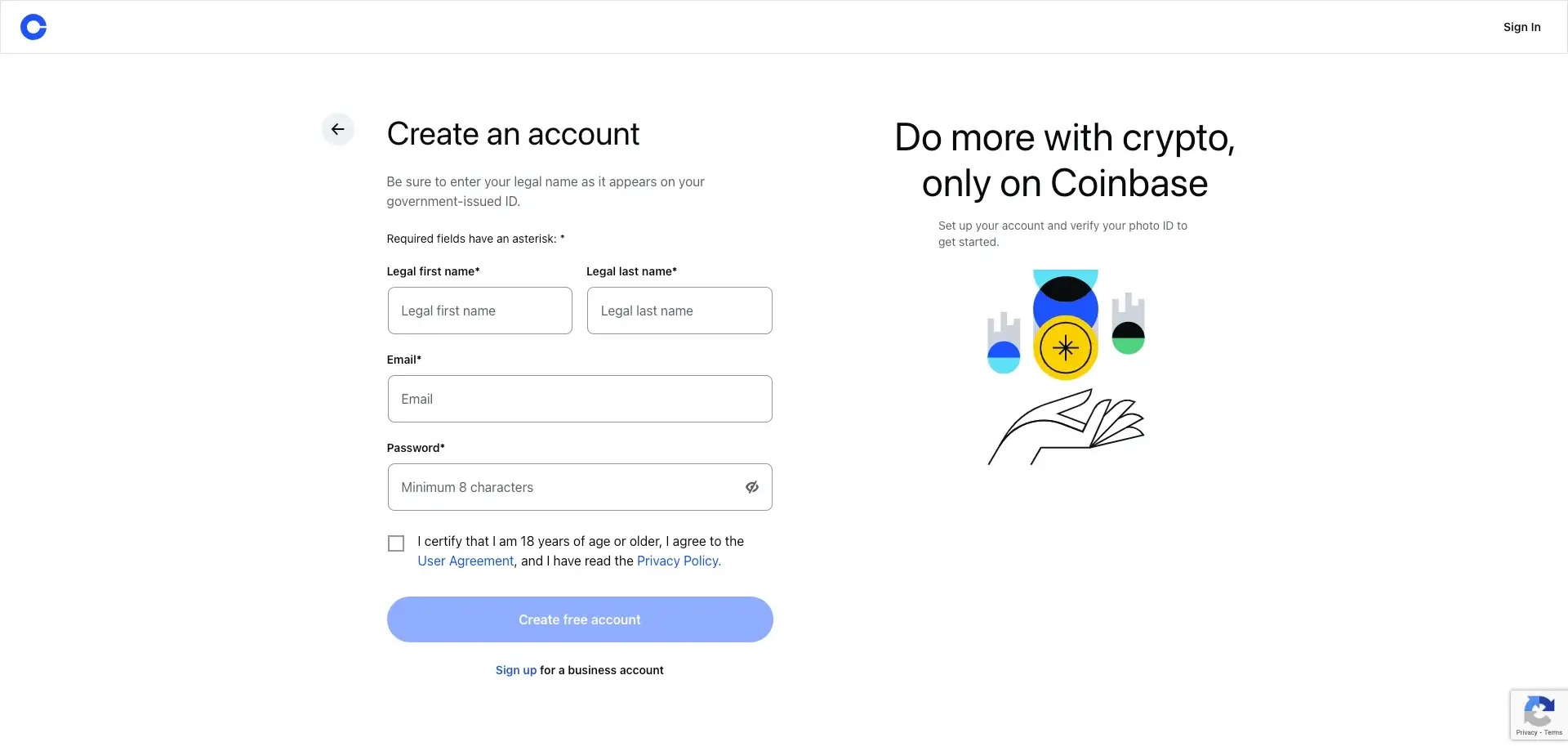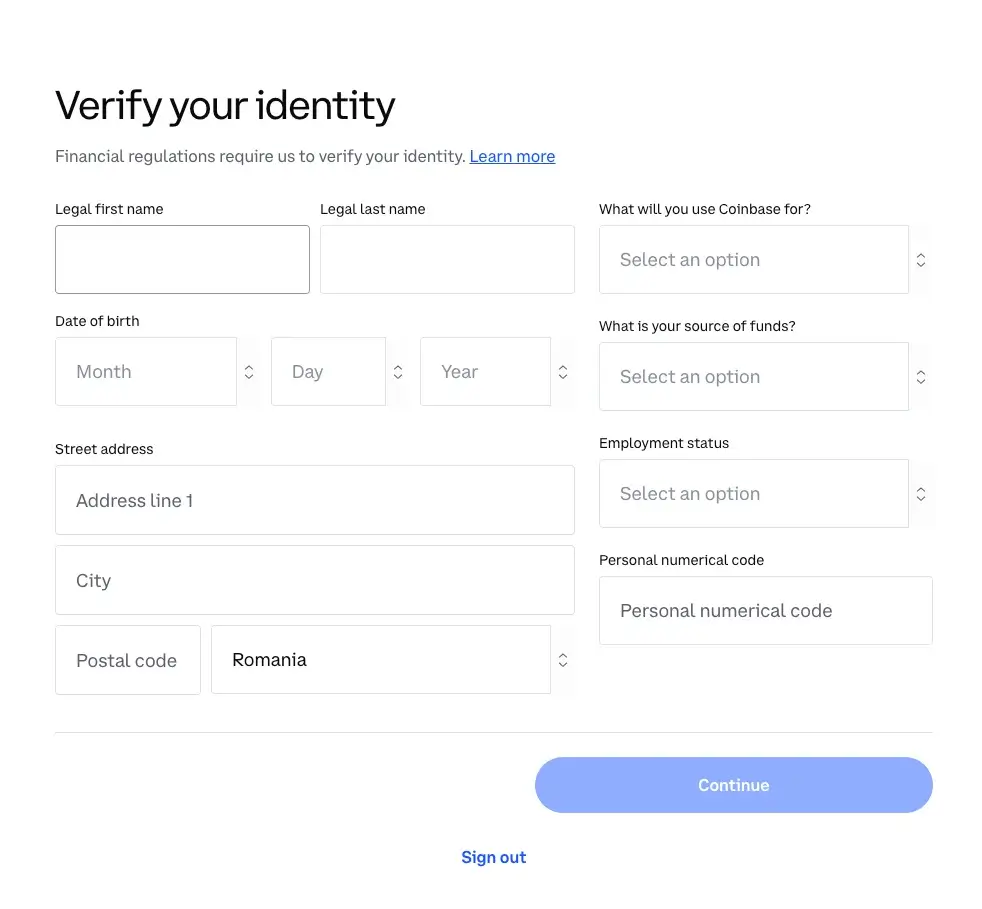Table of contents
Crypto trading has become so popular that it is impossible not to have at least thought of investing in a cryptocurrency. But with crypto comes the responsibility and concern of finding the right crypto exchange, wallet, and even crypto assets suitable for your budget and goals.
While all these choices are yours to make, deciding what platforms to use and which crypto to trade requires researching what the market has to offer. And this is where we can help you.
So, in this article, we will talk about two trading platforms that come with many great benefits: Uphold and Coinbase. We will discuss their main features, security measures, various fees, accessibility, supported coins, ease of use, and many more. This way, you can make an informed decision regarding what platform suits your goals and trading knowledge.
What Is Uphold?

Uphold is a New York-based financial service platform founded in 2013 and launched 2 years later. The company offers various trading services, allowing users to hold, convert, and complete transactions with various assets, including crypto, fiat, equities, and precious metals.
Originally named Bitreserve, Uphold became popular thanks to its well-developed platform and wide range of investment products available for trading. Furthermore, the platform is available worldwide, increasing accessibility even more.
With Uphold, users can send funds and trade various asset classes in just a few steps through a user-friendly platform available online and as an app on iOS and Android. It is essential to notice that, unlike other crypto exchanges, Uphold allows users to move funds from one form of value to another in fewer steps.
For instance, you can exchange fiat for a less popular coin without being required first to exchange fiat for USDC. This increases the ease of use, thus making Uphold one of the top options for user-friendliness.
Through this feature, Uphold aims to lower transaction fees as much as possible, and this can be a significant advantage, especially when crypto enthusiasts are drawn back by high transaction fees, choosing not to trade crypto instead of being required to support the transaction costs.
How to Create an Uphold Account?
Creating an Uphold account is pretty straightforward, taking just a few minutes. First, you should access the Uphold website. Then, click on the “Sign up” button from the upper right corner of the screen.

Then, you should confirm that you have read a disclaimer.

Afterward, you can enter your details, such as email address, password, country of residence, and citizenship. Also, don’t forget to read the terms and conditions and privacy policy and accept them. If you already have an account, you can simply log in.

Then, you will be required to enter your full name and date of birth. Confirm your details, and you will be ready to move on to the next step.

Afterward, you will have to enter your home address.

Then, you will be required to set up 2FA by providing your phone number. You will receive a code that you should provide to Uphold.

Once you set up 2-step verification, you should check your email and confirm your address.

You will then have to complete a short KYC procedure and an identity verification. After completing these processes, you can access the Uphold dashboard.

About Coinbase Cryptocurrency Exchange
Launched in 2012 by Brian Amstrong and Fred Ehrsam, Coinbase is the 2nd largest cryptocurrency exchange by trading volume. The platform is available almost worldwide, allowing users to purchase, sell, exchange, and trade hundreds of digital assets. On April 14, 2021, Coinbase became a publicly traded company on the Nasdaq exchange through a direct stock listing.
Thanks to its products, Coinbase is an excellent option for beginners and experienced traders alike. Besides the regular platform we all are used to, Coinbase has also developed other tools, such as Coinbase Wallet, Coinbase Advanced Trade (formerly known as Coinbase Pro), the Coinbase Visa debit card, and its latest launch, Base, which is an Ethereum Layer-2 network.
This way, Coinbase developed an ecosystem where users can find anything they might need for crypto trading, storing cryptocurrencies, learning about the industry, earning passive income through crypto, and much more.
Besides supporting hundreds of cryptocurrencies and being available almost worldwide, Coinbase also focused on providing numerous payment methods, increasing the ease of use even more.
Overall, Coinbase is a platform with high accessibility, is user-centered, and constantly improves its features to comply with crypto-related regulations and ensure high levels of security and transparency.
How to Sign up on Coinbase?
To sign up on Coinbase, you should first access the exchange’s website. Then, look for the “Get Started” button in the upper right corner of the screen.

Then, you will be required to provide some personal details to create the account. The details may include your full name, email, and a password you will then use to access your account.

Once you provide all the details, you can verify your email.

Then, you will start to verify your identity. First, you will have to provide your citizenship.

Afterward, you should provide details on Coinbase, such as your date of birth, address, and goals.


Then, you will have to provide a type of ID to prove your identity.

Choose from the options available and provide photos of your document.

After a few minutes, your Coinbase verification process should be completed. If you have further questions about the Coinbase verification, we have covered this topic in one of our articles.
Uphold vs Coinbase
Both Coinbase and Uphold have many significant benefits, and it is essential to consider them before choosing the platform you will use for your trading activity. Furthermore, you should consider your trading and investment plan, goals, and trading knowledge. This way, you will be able to make an informed decision regarding the right trading platform for your needs.
Main Features
As mentioned earlier, the 2 platforms have various useful features, each designed for a certain level of knowledge in the industry.
While Coinbase is a little more popular than Uphold, it is essential to note that Uphold allows users to trade non-crypto assets, such as fiat and precious metals. Furthermore, Uphold focused on developing a way to exchange crypto funds without needing an intermediary stablecoin.
On Uphold, this feature is called “Anything to Anything,” and it is a valuable tool as it enables trading between various asset classes supported by the platform.
Furthermore, Uphold has developed and operates its custodial wallet, where users can safely store their crypto assets. The wallet developed by Uphold is used by the Brave browser to distribute Brave Rewards, which consists of its cryptocurrency, Basic Attention Token (BAT).
On the other hand, Coinbase has also developed a custodial wallet that allows crypto enthusiasts to keep their tokens safe for indefinite periods. Besides, Coinbase also offers a non-custodial wallet, which might be an advantage worth considering, especially for users who focus on anonymity.
Coinbase also launched other tools and platforms, such as Coinbase Advanced Trade, which replaces Coinbase Pro. Coinbase Advanced Trade is a more advanced platform for experienced traders seeking advanced transaction types.
Furthermore, in 2019, Coinbase launched its Visa debit card, which allows users to hold multiple assets, including crypto and fiat currencies. The Coinbase Visa debit card can be used anywhere Visa cards are accepted, which can highly contribute to the overall accessibility of the crypto project.
Besides, with Coinbase, users can earn crypto rewards through Coinbase Earn, a program where investors can get through various crypto-related guides and earn while learning.
Supported Cryptocurrencies
Regarding supported coins, the Uphold vs Coinbase match is close to a tie. Although they support fewer crypto assets than other websites, both platforms cover the most popular cryptocurrencies, such as Bitcoin (BTC), Ethereum (ETH), Ripple (XRP), Dogecoin (DOGE), and many more.
Uphold and Coinbase support around 250 cryptocurrencies, but things can change depending on your location and whether you use the Coinbase advanced platform. While the regular Coinbase supports around 250 cryptocurrencies, Coinbase Advanced Trade reaches 350 supported assets. Furthermore, it is essential to mention that Coinbase supports fewer cryptocurrencies in the US due to various regulations in the jurisdiction.
On the other hand, Uphold supports other types of assets, too. On Uphold, users can also trade precious metals, stocks, equities, and more.
Fees
Uphold and Coinbase charge various types of fees, including trading fees, withdrawal fees, network fees, and others. While their policies differ, the costs are pretty similar.
Uphold Fees
Uphold has 0% trading commissions but charges spread fees for crypto purchases and sales. The spread fees can range from 1.5% to 1.8% and may be considered a bit high. However, in most cases, the platform does not charge deposit or withdrawal fees, which can be a significant advantage.
| Action | Fee |
| Bank Account | Free |
| Withdrawal | Free or up to 1.75% |
| Debit/Credit Card Deposits | Free or up to 3.99% |
| ACH/SEPA Transfer | Free |
| Crypto Conversion | Free |
| Trading | Stablecoins and major market FX: 0.25%; BTC, ETH: 1.4% – 1.6%; Altcoins: 1.9% – 2.5%; Precious metals: 1.9% – 2.5%. |
Coinbase Fees
Coinbase has various fees, depending on the service you are using and the amount of crypto you trade. However, some of the most popular fees include:
| Action | Fee |
| Bank Account | 1.49% |
| Withdrawal | Free |
| Debit/Credit Card Deposits | 3.99% |
| ACH/SEPA Transfer | Free |
| Crypto Conversion | Up to 2% (spread) |
| Trading | Up to 0.6% (additional information here) |
Security Features
Security is paramount for all crypto projects, especially when crypto thefts reach almost hundreds of millions of dollars in stolen funds. Fortunately, both Coinbase and Uphold take security seriously and offer as many security measures as possible, most of them being similar.
Uphold and Coinbase require users to complete KYC and account verification procedures, as well as set up 2FA (Two-Factor Authentication). Furthermore, the companies store most user funds in cold storage, which makes them even safer.
Besides, Coinbase and Uphold have developed a bug bounty program that allows users to report bugs they noticed while using the platforms.
In addition to these security features, Coinbase also employs multiparty computation (MPC). This concept increases security even more by generating cryptographic keys for any on-chain transaction. The keys are generated in different parts, making it almost impossible for hackers to steal funds involved in such transactions. Furthermore, USD funds held on Coinbase are insured by the FDIC (Federal Deposit Insurance Corporation).
Accessibility
As we mentioned earlier, both Uphold and Coinbase are pretty user-friendly platforms suitable for beginners and experienced traders. However, some advanced transaction types on Uphold might require more extensive trading experience.
Similarly, while Coinbase Simple Trade is a good option for beginners, Coinbase Advanced Trade might make them feel a little overwhelmed by all the information provided on the platform.
Uphold and Coinbase have also developed mobile apps that are available on Android and iOS. If you are looking for the Coinbase app, remember there are 2 apps: Coinbase Exchange and Coinbase Wallet.
Uphold vs Coinbase – Verdict
Uphold and Coinbase are popular and trustworthy trading platforms with many valuable features and tools. While Uphold also offers trading services for assets other than crypto, Coinbase is primarily focused on the purchase, exchange, sale, and trade of cryptocurrencies.
Both projects charge some fees, and while some may be low, others can be considered a bit high compared to other similar trading platforms. However, Uphold and Coinbase also charge no fees for multiple services and types of transactions.
In what concerns security, both platforms ensure they comply with crypto-related regulations and focus on keeping users’ funds and personal details as safe as possible.
FAQ
Is Uphold as safe as Coinbase?
Uphold is also focusing on maintaining a high level of security, just as Coinbase does. Considering that it keeps most funds in cold storage and requires users to complete KYC and account verification procedures, as well as set up 2FA, it is fair to say the Uphold gets pretty close to Coinbase’s level of security.
Is it safe to leave crypto on Uphold?
Yes, you can keep crypto on Uphold, as it stores such funds in cold storage, which is hard for hackers to access.
Which platform is better than Coinbase?
Each similar platform has many valuable features, but rather than deciding whether there is a better platform than Coinbase, it is essential to consider your needs, goals, and budget. This way, you can tell which platform is better for you, if there is one.
Do Uphold and Coinbase report to the IRS?
Uphold and Coinbase file annual reports with the IRS (Internal Revenue Service) to comply with all regulations implied by the institution.
In Conclusion
The “Uphold vs Coinbase” match has emphasized many benefits the platforms come with, and we hope that you will consider them when choosing the platform you will use for crypto trading.
Always remember that you should perform your own research on the crypto industry and trading crypto assets, and always focus on developing a detailed crypto investment plan to ensure that your efforts will bring as many profits as possible to the table.

